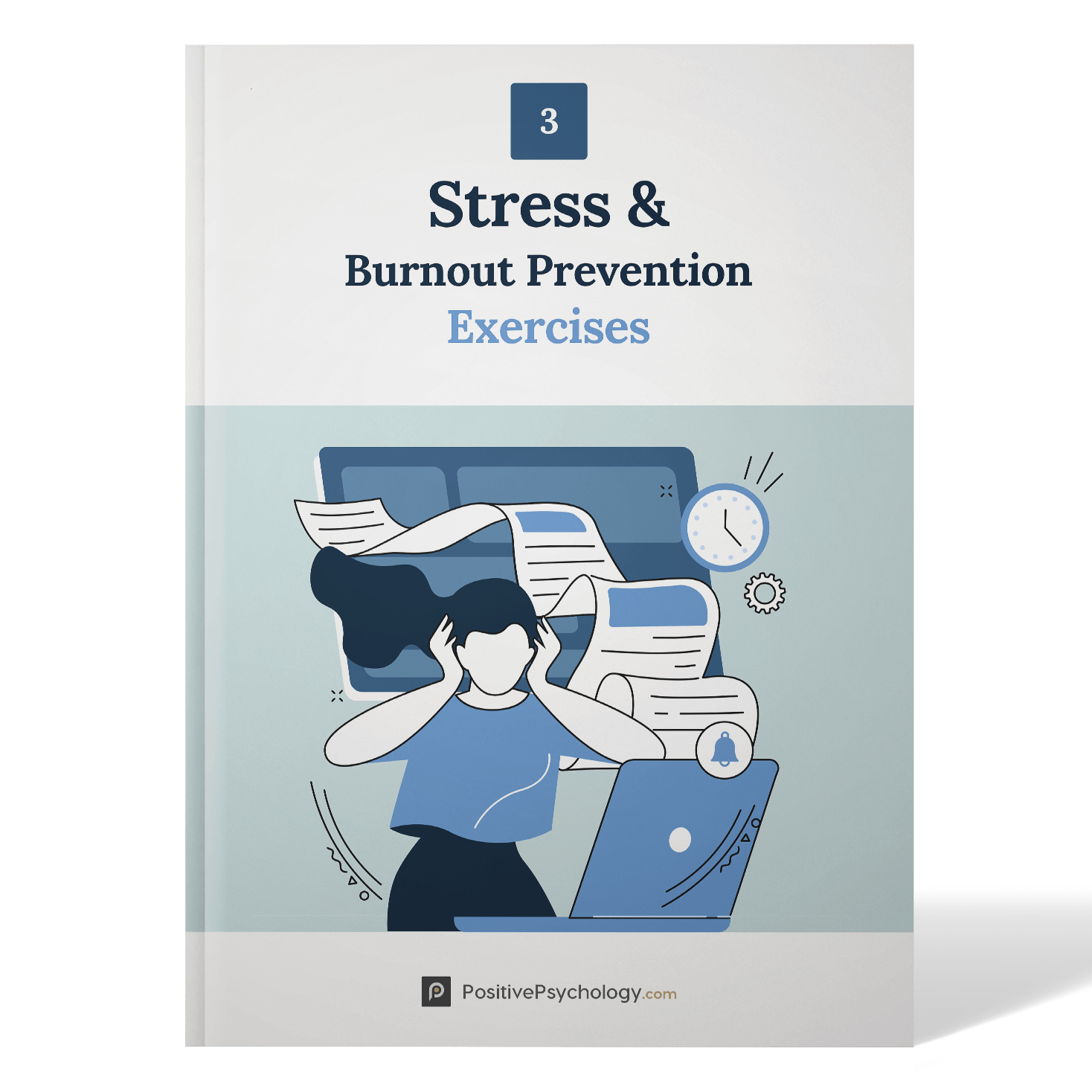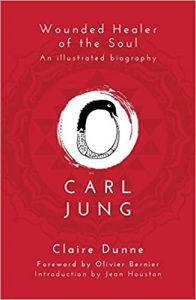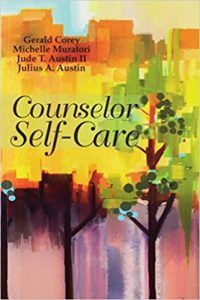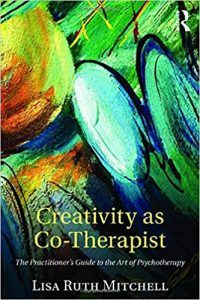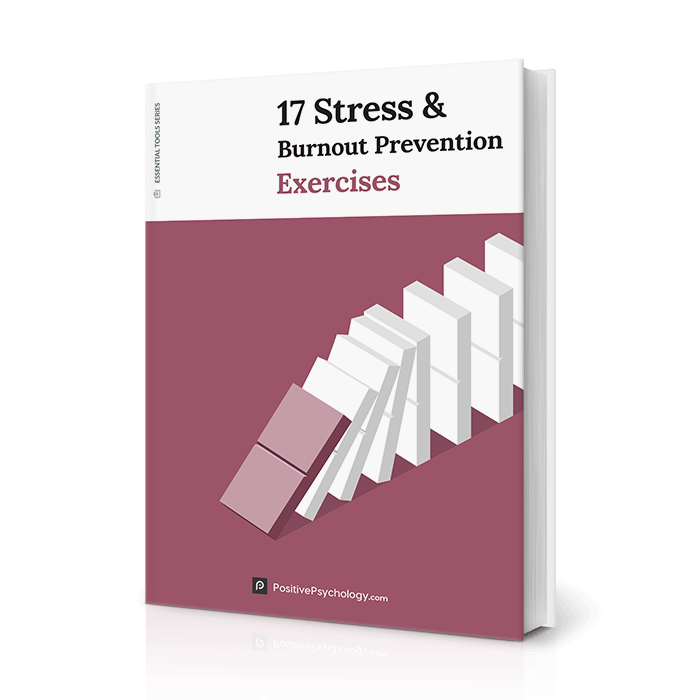Self-Care for Therapists: Tools & Counselor Self-Care Plan
 In the world of mental health, caring for others who are emotionally stressed or distressed may create a stressful environment for therapists themselves.
In the world of mental health, caring for others who are emotionally stressed or distressed may create a stressful environment for therapists themselves.
It begs us to ask: who cares for the mental health carer?
Dunne (2015) looks into Carl Jung’s wounded healer concept, in which analysts must acknowledge pain from patients to heal themselves from personal pain experienced. To do this, Jung faced a decision in his work: Does he see himself as part of the drama or cloak himself in his own authority (Dunne, 2015)?
But why must we even ask these questions in the first place? To answer this, we explore why self-care is exceptionally important to those working in the mental health field.
Before you continue, we thought you might like to download our three Stress & Burnout Prevention Exercises (PDF) for free. These science-based exercises will equip you and your clients, with tools to manage stress better and find a healthier balance in your life.
This Article Contains:
Why Is Self-Care Important for Mental Health Practitioners?
Mental health problems can be prevalent and persistent among psychologists and other therapists working in healthcare services.
There are many common problems therapists face when engaged in this line of work, including increased depression, psychosocial isolation, decreased job satisfaction, reduced self-esteem, disrupted personal relationships, and loneliness (Shapiro, Brown, & Biegel, 2007).
How is this happening? The wounded healer concept may play a role.
A recent survey of clinical psychologists (Tay, Alcock, & Scior, 2018) in the United Kingdom found that 63% of respondents reported having experienced self-defined mental health problems at some point in their lives, including issues around anxiety and depression.
Compare this to the 43% lifetime prevalence of mental health problems experienced by the general population in the United Kingdom (Mental Health Foundation, 2016), and we see how important it is for therapists to take care of themselves.
Stress and burnout seem to be key issues for therapists. In a systematic review of 8,808 therapists, 55% reported having moderate to high work-related stress and burnout (Simionato & Simpson, 2018).
Among the professional challenges therapists experience is compassion fatigue from emotional labor that is often part of working with clients (Mann, 2004).
While therapists enter the mental health field to help those in need, it does not make them invulnerable to feeling overly exhausted from the issues brought in by their clients.
Benefits of self-care plans for therapists
Engaging in self-care for therapists has many benefits (Bradley et al., 2013) including:
- Self-awareness
By acknowledging their pain to themselves, therapists are better placed to understand client experiences and reactions to pain. - Further appreciation of the therapeutic value of the process
Once therapists are more aware of their feelings and issues, engaging in strategies or techniques can be more effective. - Containing the problem
When devising strategies to cope with their own stress, anxiety, or burnout, therapists can feel overwhelmed. Self-care creates a protective distance between themselves and the problems they face. - Externalizing the problem
When the problem is externalized, therapists feel more prepared to contain negative emotions and facilitate healing.
4 Real-Life Examples of Self-Care Plans

It is best to start with a quick self-care assessment (Kottler, 2012) with the following questions:
- Does a therapist believe they deserve self-care?
- Does the therapist have a go-to list of self-care activities?
- Has the therapist made self-care a habit?
The responses will reveal different areas where engagement is needed when creating self-care plans.
Physical health
Caring for patients has been known to affect therapists on a physical level. Stress can increase body weight and fatigue (Barnett & Cooper, 2009).
A self-care plan that addresses therapists’ physical health concerns while delivering therapy may include setting up a regular exercise schedule.
Whether it would be more prudent to exercise every day or three days per week, a self-care plan that involves physical activity may be best aided by consulting with a trainer at a gym or a nutritionist.
Furthermore, a self-care plan may be at its best when shared. When deciding to engage in exercise and having a plan for it, sharing with family, friends, and even a physician may help therapists stick to the plan.
Cognitive
Therapists can feel stressed when helping clients sift through thoughts and emotions. It is important for therapists to feel as if they can clear their minds of thoughts that may inhibit not only their ability to administer therapy, but also their personal lives (Lomas et al., 2019).
To help address therapists’ cognitive concerns, a self-care plan may include setting aside time each day to practice meditation, whether that is documented in a schedule or a note to themselves.
Attuning to the world around them may be able to help therapists improve their cognitive functioning to help clients. In the Helpful Worksheets and Tips section below, we will detail recommended resources, including being aware of one’s own five senses.
Emotional
When working with patients, therapists might feel as if boundaries are being crossed. They may feel overwhelmed in processing another’s emotions while trying to balance issues in their personal lives (Bennett-Levy, 2019).
A good self-care plan for therapists who encounter emotional difficulties includes creating a gratitude journal to note down at least one aspect of their personal lives they appreciate each week.
In the Helpful Worksheets and Tips section below, we discuss a journal that therapists can use to get in touch with aspects of their lives they appreciate and goals they wish and hope for in the future.
Understanding these aspects of themselves and knowing there is a path for them outside of the therapy space may help therapists feel less overwhelmed by emotions while working with clients.
Spiritual
Sometimes, it can help therapists to have a self-care practice that removes them from the therapy room and issues that clients present with. Being involved with their spiritual side can provide such a practice (Boellinghaus, Jones, & Hutton, 2013).
An example of how therapists can address their spiritual needs is setting aside time to listen to spiritual music.
12 Self-Care Strategies and Techniques
Building a self-care plan within the areas of therapists’ physical health, cognitive, emotional, and spiritual needs is important. The following strategies and techniques can be added to a schedule or journal that is part of the plan itself:
Physical
- Maintain a healthy and nutritious diet. Ideally with the help of a nutritionist, planning your diet can be vital.
- Drink plenty of water. Therapists often forget how much energy is being spent listening and talking to patients. Therapists have water set aside for patients; why not for themselves as well?
- Get enough sleep. Without proper sleep, fatigue may make therapists less able to exert the needed concentration in sessions with patients.
Cognitive
- Read for leisure. Taking thoughts away from sessions and redirecting them toward things to relax with and enjoy, such as books, can help.
- Being aware of self-talk, inner thoughts, judgments, and feelings can reduce stress and burnout (Lomas et al., 2019).
- Participate in personal therapy. It is important to have a separate space for therapists to discuss stressful thoughts and behaviors brought on by delivering therapy.
Emotional
- Find things that oppose the negative emotions experienced during a session. For example, if a session was particularly sad, watch a funny movie.
- Practice using positive affirmations, such as praising yourself. As a therapist, you may not feel as if positive praise is warranted for your work, but what you do is important. Positive affirmations can benefit emotional wellbeing, lowering stress and rumination (Koole et al., 1999; Wiesenfeld et al., 2001).
- Allow yourself to cry. All therapists can feel overwhelmed by emotions; a need to cry can be prevalent. Crying in personal therapy, as well as on your own time and in your own home, can be appropriate.
Spiritual
- Make time for self-reflection at home, in nature, in a journal, or with a therapist.
- Be open to not knowing. Therapists ground themselves in research and evidence-based work, but that does not mean therapists always have the answer. Not knowing can be stressful, but accepting that you don’t know everything and releasing yourself from this pressure are important parts of self-care.
- Spend time in nature. The commute to the office, interactions with many people, and day-to-day administrative tasks can feel like too much at times. Escaping to nature is a key aspect of a self-care break.
Helpful Worksheets and Tips

The world around you
As Kottler (2012) discussed, before deciding what to include in a self-care plan, therapists can assess if they are open to self-care in the first place.
Being open means being knowledgeable and knowing that what can be used on themselves can also be used with clients.
Therapists may benefit from their own self-care by getting in touch with the world around them. What do we mean by this? In thinking about things one can see and hear, therapists gain a sense of relaxation they can use with those they work with. The Five Senses Worksheet can be helpful for this.
Muscle relaxation
Being familiar with muscle relaxation exercises is highly beneficial for therapists, as it also helps them apply this exercise with their clients.
Progressive muscle relaxation is a technique used to disrupt feelings of anxiety by tensing specific muscle groups. This progressive muscle relaxation worksheet guides therapists through the basics of the exercise.
Self-love
When feeling stressed, it can be easy for therapists to forget reasons to love themselves and appreciate their positive qualities.
What makes you unique? What is one personality trait that makes you proud? What are three compliments you received, and how did they make you feel?
A sense of accomplishment (or lack of it) can often be overlooked, adding to stress. When engaging in self-care, writing down these positive aspects can help therapists help themselves and, in turn, help clients.
Here is a Self-Love Journal to help you get started.
Positive qualities
If keeping a journal is not for you, an alternative tip is to create a series of cards listing positive qualities.
Write down positive affirmations and qualities about yourself on a series of cards as a way to engage in self-care. To explain more about this strategy, we have a worksheet called Stacking the Deck that therapists can use daily.
Awareness
Further to the self-love and positive qualities exercises, it’s important to note other positive aspects, such as how you handle criticism and the goals on your agenda. These can be outside of the therapy room.
Therapists who know their goals beyond those of their career understand that goals are an important part of self-care. To help you realize this, check out our My Beliefs worksheet.
Tips
Other ideas for self-care include:
- Letting light in a room
- Engaging in physical exercise
- Limiting media consumption around negative news topics
- Practicing breathing exercises
- Dancing
- Learning a new skill or language using online learning programs
- Drawing or painting
- Playing brain games such as word or jigsaw puzzles
- Cleaning around the home
- Scheduling me-time with a relaxing bubble bath
- Lighting scented candles
- Listening to relaxing music
Books on the Topic
These books are great reads for enhancing self-care.
1. Carl Jung: Wounded Healer of the Soul – Claire Dunne
This book is an illustrated biography of Carl Jung.
It details his history from childhood through self-discovery and professional success.
Claire Dunne (2015) comments throughout and touches on influences of Carl Jung’s ideas about therapists being wounded healers.
Find the book on Amazon.
2. Counselor Self-Care – Gerald Corey, Michelle Muratori, Jude T. Austin II, and Julius A. Austin
Counselor Self-Care offers realistic perspectives on how to achieve work–life balance and personal wellness for counselors from graduate school to retirement.
Seasoned counselors, new professionals, and graduate students share their thoughts and experiences, contributing to a practical self-care action plan all in one book.
Find the book on Amazon.
3. Creativity as Co-Therapist: The Practitioner’s Guide to the Art of Psychotherapy – Lisa Mitchell
In Creativity as Co-Therapist, Lisa Mitchell (2016) guides therapists through a five-stage process to help them understand therapy as an art form.
This book guides the reader through the five stages so they are better able to identify areas where they may get stuck with patients.
Find the book on Amazon.
PositivePsychology.com’s Relevant Resources
- While designed for clients, the Self-Care Check-In can be a quick way for therapists to see where more attention is needed to ensure they are meeting their self-care needs.
- The Identifying Your Stress Resources exercise can help therapists recognize their resources and identify how they can support their strengths in times of stress.
- The Catching Your Critic worksheet can help therapists recognize their inner voice and provide support for themselves.
- How to Practice Self-Care: 10+ Worksheets and 12 Ideas provides a great selection of practical ideas and additional worksheets and insights into self-knowledge.
- A Look at the Self-Care Wheel: Templates, Worksheets, and Activities provides apps and activities aimed at positive self-care, along with further explanation of the self-care wheel.
- Understanding Therapis Burnout: 12 Symptoms & Recovery Tips is a must read to know if you are sailing too close to the edge.
If you’re looking for more science-based ways to help others manage stress without spending hours on research and session prep, check out this collection of 17 validated stress management tools for practitioners. Use them to help others identify signs of burnout and create more balance in their lives.
A Take-Home Message
In the mental healthcare profession, working with patients can be overwhelming and lead to mental health concerns and fatigue that therapists may not have expected when embarking on their professional journey.
After all, therapists are also people, and stress and burnout can happen to anyone, even the helpers.
So, who then helps the helpers? Who cares for them during times of burnout?
Self-care provides the ability for therapists to look after themselves, but it does not have to be done by themselves.
It can be done with the help of other therapists, friends, family, and the community at large.
Self-care begins by realizing you have to take care of yourself and develop a self-care plan. Use the resources provided and keep in mind why you are doing this.
Clients depend on us. But we depend on ourselves just as much.
We hope you enjoyed this article; don’t forget to download our three Stress & Burnout Prevention Exercises for free.
- Barnett, J., & Cooper, N. (2009). Creating a culture of self-care. Clinical Psychology: Science and Practice, 16, 16–20.
- Bennett-Levy, J. (2019). Why therapists should walk the talk: The theoretical and empirical case for personal practice in therapist training and professional development. Journal of Behavior Therapy and Experimental Psychiatry, 62, 133–145.
- Boellinghaus, I., Jones, F. W., & Hutton, J. (2013). Cultivating self-care and compassion in psychological therapists in training: The experience of practicing loving-kindness meditation. Training and Education in Professional Psychology, 7, 267–277.
- Bradley, N., Whisenhunt, J., Adamson, N., & Kress, V. E. (2013). Creative approaches for promoting counselor self-care. Journal of Creativity in Mental Health, 8, 456–469.
- Corey, G., Muratori, M., Austin, J. T., II, & Austin, J. A. (2018). Counselor self-care. Amer Counseling Association.
- Dunne, C. (2015). Carl Jung: Wounded healer of the soul: An illustrated biography. Watkins Media Limited.
- Koole, S. L., Smeets, K., van Knippenberg, A., & Dijksterhuis, A. (1999). The cessation of rumination through self-affirmation. Journal of Personality and Social Psychology, 77, 111–125.
- Kottler, J. (2012). The therapist’s workbook: Self-assessment, self-care, and self-improvement exercises for mental health professionals. John Wiley & Sons.
- Lomas, T., Medina, J. C., Ivtzan, I., Rupprecht, S., & Eiroa-Orosa, F. J. (2019). A systematic review and meta-analysis of the impact of mindfulness-based interventions on the well-being of healthcare professionals. Mindfulness, 10, 1193–1216.
- Mann, S. (2004). People-work: Emotion management, stress and coping. British Journal of Guidance & Counselling, 32, 205–221.
- Mental Health Foundation. (2016). Fundamental facts about mental health 2016. Author.
- Mitchell, L. (2016). Creativity as co-therapist: The practitioner’s guide to the art of psychotherapy. Routledge.
- Simionato, G. K., & Simpson, S. (2018). Personal risk factors associated with burnout among psychotherapists: A systematic review of the literature. Journal of Clinical Psychology, 74, 1431–1456.
- Shapiro, S., Brown, K., & Biegel, G. (2007). Teaching self-care to caregivers. Effects of mindfulness-based stress reduction on the mental health of therapists in training. Training and Education in Professional Psychology, 1, 105–115.
- Tay, S., Alcock, K., & Scior, K. (2018). Mental health problems among clinical psychologists: Stigma and its impact on disclosure and help-seeking. Journal of Clinical Psychology, 74, 1545–1555.
- Wiesenfeld, B. M., Brockner, J., Petzall, B., Wolf, R., & Bailey, J. (2001). Stress and coping among layoff survivors: A self-affirmation analysis. Anxiety, Stress & Coping: An International Journal, 14(1), 15–34.
Read other articles by their category
- Body & Brain (50)
- Coaching & Application (57)
- Compassion (26)
- Counseling (51)
- Emotional Intelligence (24)
- Gratitude (18)
- Grief & Bereavement (21)
- Happiness & SWB (40)
- Meaning & Values (26)
- Meditation (20)
- Mindfulness (45)
- Motivation & Goals (45)
- Optimism & Mindset (34)
- Positive CBT (29)
- Positive Communication (20)
- Positive Education (47)
- Positive Emotions (33)
- Positive Leadership (18)
- Positive Parenting (4)
- Positive Psychology (33)
- Positive Workplace (37)
- Productivity (17)
- Relationships (46)
- Resilience & Coping (38)
- Self Awareness (21)
- Self Esteem (38)
- Strengths & Virtues (32)
- Stress & Burnout Prevention (34)
- Theory & Books (46)
- Therapy Exercises (37)
- Types of Therapy (64)
